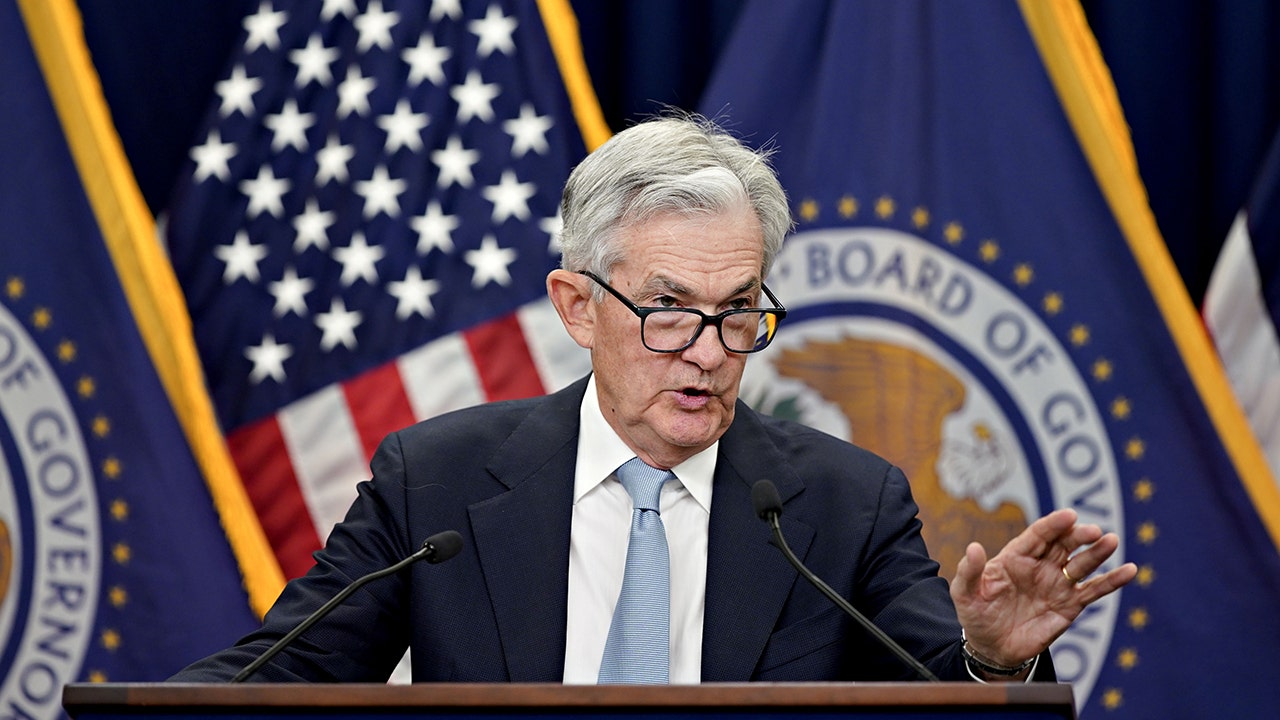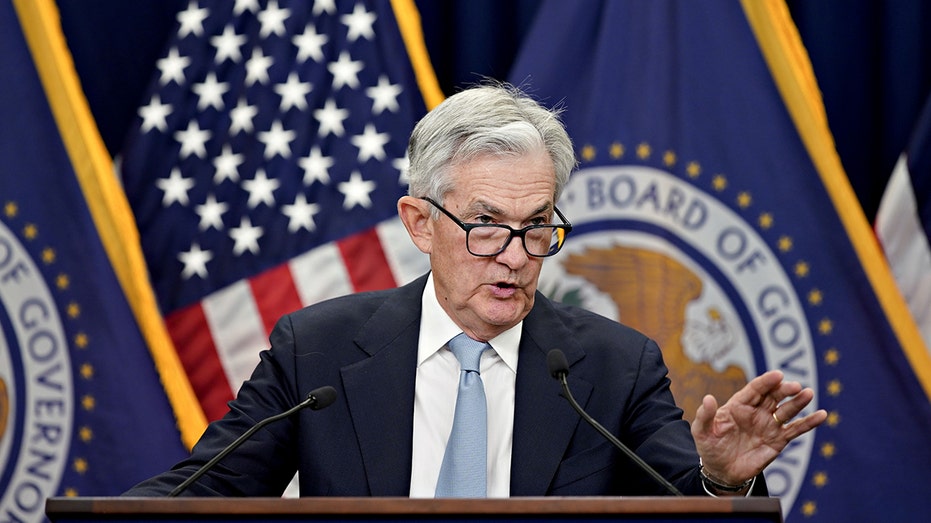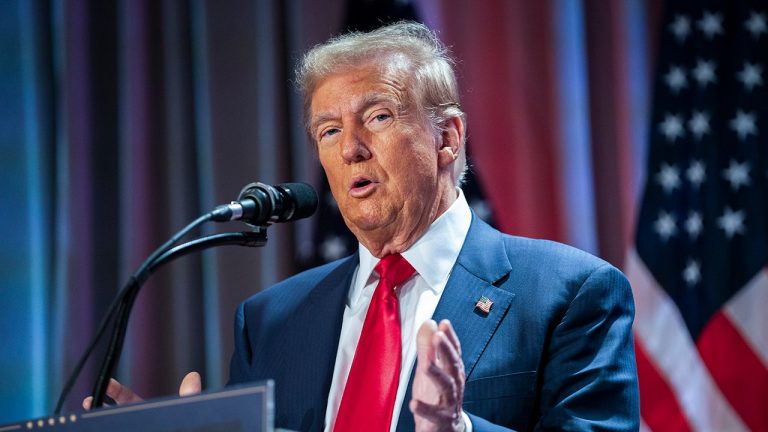
The Federal Reserve chairman delivers the keynote address at a Stanford University forum.
Federal Reserve Chair Jerome Powell on Wednesday stressed the need for more evidence that inflation is subsiding before policymakers move to cut interest rates.
Powell lauded recent declines in inflation, but said the Fed’s job is “not yet done” and that policymakers will carefully assess the economic picture before moving to reduce rates.
“On inflation, it is too soon to say whether the recent readings represent more than just a bump,” Powell said in prepared remarks ahead of a question-and-answer session at Stanford University. “We do not expect that it will be appropriate to lower our policy rate until we have greater confidence that inflation is moving sustainably down toward 2 percent.”
WAGES IN THE US ARE FALLING AT A ‘STRIKING’ PACE, INDEED SAYS

Federal Reserve Chairman Jerome Powell speaks during a news conference in Washington, D.C., on March 22, 2023. (Al Drago/Bloomberg via / Getty Images)
Powell’s remarks come amid some concern on Wall Street that progress on inflation is stalling out. While inflation has fallen considerably from a peak of 9.1%, progress has largely flatlined since the summer.
“Given the strength of the economy and progress on inflation so far, we have time to let the incoming data guide our decisions on policy,” Powell said. “If the economy evolves broadly as we expect, most FOMC participants see it as likely to be appropriate to begin lowering the policy rate at some point this year.”
Policymakers have raised interest rates sharply over the past two years, approving 11 rate increases in the hopes of crushing inflation and cooling the economy. In the span of just 16 months, interest rates surged from near zero to above 5%, the fastest pace of tightening since the 1980s.
Fed officials are now grappling with when they should take their foot off the brake. Powell said officials are trying to balance the risks between cutting interest rates too soon, which risks setting off inflation again, or waiting too long to cut rates, which could weigh on the economy and possibly trigger a recession.
“The outlook is still quite uncertain, and we face risks on both sides,” Powell said. “Reducing rates too soon or too much could result in a reversal of the progress we have seen on inflation and ultimately require even tighter policy to get inflation back to 2 percent. But easing policy too late or too little could unduly weaken economic activity and employment.”
401(K) ‘HARDSHIP’ WITHDRAWALS SURGE TO ANOTHER RECORD AS HIGH INFLATION STINGS
The Federal Open Market Committee last week voted to hold rates steady at a range of 5.25% to 5.5%, the highest level in 22 years. Officials also signaled that three rate cuts are still likely this year, but reiterated that the timing of those reductions hinges on the inflation trajectory.
Officials will hold their next meeting on April 31-May 1.
Most investors now expect the Fed to begin cutting rates in June and are penciling in three to four reductions this year – a dramatic shift from the start of the year, when they anticipated six rate cuts beginning as soon as March.
Hiking interest rates tends to create higher rates on consumer and business loans, which then slows the economy by forcing employers to cut back on spending. Higher rates have helped push the average rate on 30-year mortgages above 8% for the first time in decades. Borrowing costs for everything from home equity lines of credit, auto loans and credit cards have also spiked.
| Ticker | Security | Last | Change | Change % |
|---|---|---|---|---|
| I:DJI | DOW JONES AVERAGES | 39110.96 | -59.28 | -0.15% |
| I:COMP | NASDAQ COMPOSITE INDEX | 16260.510667 | +20.06 | +0.12% |
| SP500 | S&P 500 | 5208.28 | +2.47 | +0.05% |
GET FOX BUSINESS ON THE GO BY CLICKING HERE
Yet the rapid rise in rates has not stopped consumers from spending or businesses from hiring.
The labor market is continuing to chug along at a healthy pace, with employers adding 353,000 new workers in January – nearly double what economists expected. Job openings remain high, and the unemployment rate is continuing to hover around 3.7%.
Fed officials have said higher interest rates are still working their way through the economy and will eventually weigh on growth. Until that happens, policymakers have indicated they will keep interest rates elevated.






